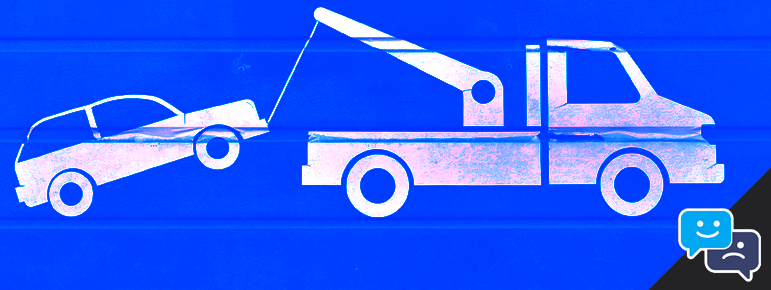Last Updated on March 5, 2024
Key Takeaways
- Know Your Rights: Federal and state laws protect you from unfair repossession practices, allow you to reclaim personal items from your vehicle, and ensure you’re informed about and can benefit from the sale of the repossessed vehicle.
- Prevent Repossession: Act early by communicating with your lender, refinancing, adjusting your loan terms, or even considering bankruptcy to avoid losing your vehicle.
- Be Proactive: Stay informed about repossession laws and take immediate action if you’re facing financial difficulties to avoid repossession.
When faced with car repossession, there will be millions of thoughts flying through your mind — many of them daunting and frightening to think about. But even when dealing with this potentially damning circumstance, there are car repossession loopholes you have rights and protections.
Last year saw 2.2 million personal vehicles repossessed across the nation, averaging 5,418 every day. But you don’t need to become a notch on this year’s stat chart. Instead, knowing lenders cannot breach the peace, refinancing your loan, or requesting a deferment can help keep your vehicle where it belongs.
From easy-to-understand repo laws to your rights during the process to tips and tricks for avoiding it altogether, consider this the only car repossession loophole guide you’ll ever need.
Car Repossession Loopholes: Laws and Regulations Made Simple
Car repossession laws change depending on your state. In fact, the bulk of the differences lies in:
- where on your property repossession companies can go to take your vehicle,
- when your loan is considered in default, and
- the steps you can take to retrieve your car after the fact.
Even with state differences, the federal Dodd-Frank Act stops creditors from partaking in deceptive, unfair, or abusive practices that protect you from repossessions in the following circumstances:
- You agreed on a loan extension to avoid repossession.
- Your loan is current, regardless of prior delinquencies.
- You’ve filed for bankruptcy.
- The company outlined steps you could take to avoid repossession and you followed them.
- The company charged unlawful fees that tipped your account into default.
- Your payments are processed in a different order, causing such payments to appear late.
Understand Your Car Repo Rights
Many states allow lenders to repossess vehicles, without warnings or court orders, after you’ve missed a payment. However, others require them to send you a notice beforehand, ensuring you understand which payments have been missed and giving you time to pay.
Beyond notification rights, you should keep the following in mind:
You Can Retrieve Personal Property from Inside the Vehicle
Regardless of how it may feel at the time, creditors don’t have the right to sell or keep your personal items found in your repossessed vehicle. They are also under obligations to keep said items as safe as possible before you collect them.
Always document the items left in your vehicle, alongside their value, and call the lender immediately to arrange a time to pick up your property.
Lenders Cannot “Breach the Peace” While Repossessing a Vehicle
In most states, lenders can’t “breach the peace” when repossessing vehicles, which means:
- using/threatening physical force.
- continuing the repossession after you’ve refused or resisted to allow it.
- extricating vehicles from enclosed spaces without permission.
Provided your vehicle is a closed environment, simply saying no is enough to prevent a repossession at the time. However, that doesn’t make the problem disappear forever; it offers some breathing room and a chance to pay.
Pay Your Loan, Get Your Car Back (State-Dependent)
Some states let you pay to retrieve your vehicle follow its repossession. Known as curing/reinstating your loan, you must make up overdue payments, plus additional repo costs, within a specified timeframe.
If Your Car Goes Up for Sale, You Still Have Rights
You have the right to be told before your car is either kept as compensation for the money you owe or sold, effectively giving you an opportunity to repurchase the vehicle.
Lenders who sell publicly must tell you of the date, time, and location of the sale, ensuring you have the chance to bid on it. For private sales, you are obliged to know the date the vehicle may be sold.
You Are Entitled to Receive the Surplus of the Sale
If your vehicle is sold for more than your outstanding balance, you’re entitled to acquire the surplus. Since lenders must sell the vehicle in a “commercially reasonable manner,” you can talk to an attorney if you believe the sale price in repossession was unfair.
6 Tips and Tricks for Avoiding Car Repossession
Ultimately, you want to keep your car and stop repossession in its tracks. These six tips will help you do just that:
- Talk to your lender — Avoidance won’t work. Once you realize you may miss a payment, discuss options with your lender.
- Refinance — Going to a different lender might be worthwhile, as your new loan will pay off the existing one, wiping your slate clean.
- Loan modification — Before falling behind on payments, ask for a term modification. Extending the length can significantly reduce monthly costs.
- Late charge waiver — If you can prove waiving your late charges will help restore timely payments, lenders may waive or reduce such charges.
- Deferment — Some lenders will agree to a skipped payment, tacking it onto the end of the loan term.
- File Bankruptcy — If you’re substantially behind on several bills, filing bankruptcy may be the best way to keep your vehicle and avoid costly repossession. Chapter 13 and Chapter 7 bankruptcies are viable.
Use the Above to Ensure You Never Forget Your Rights When Facing Car Repossession.
Final Thoughts
Fact is, with millions of vehicles repossessed annually, understanding the law and your rights is essential.
While car repossession laws vary by state, federal regulations, like the Dodd-Frank Act, offer protection against unfair practices. You have the right to retrieve personal items from your repossessed vehicle, and lenders cannot “breach the peace” during repossession.
Some states allow you to cure your loan to get your car back, and you have rights even if your car goes up for sale. However, to avoid repossession, consider options like talking to your lender, refinancing, loan modification, late charge waivers, deferment, or filing for bankruptcy.
Truth is, experiencing the repossession of a car can be an incredibly stressful and emotionally taxing ordeal. It often comes with a feeling of helplessness and uncertainty about how to proceed.
However, knowledge of your rights is key to navigating the challenging situation of car repossession loopholes effectively.

Managing Editor
Christopher is an automotive technical writer. When he’s not at the local autocross event, he can often be found working on one of his cars. Specializes in automotive class action law, industry trends, and automotive maintenance. Email me direct, or learn more about us

